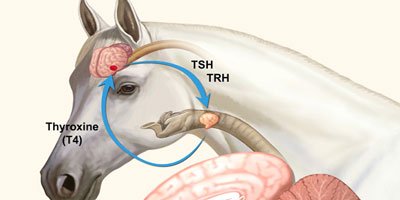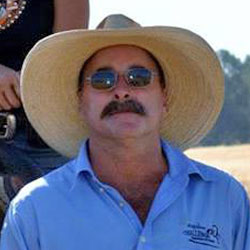
Equine Insulin Resistance And Hypothyroidism. For those of you new to Equine Challenge Supplements, we have a specific protocol for IR horses or for horses that are overweight (easy keepers). It is possible to have an IR horse with the classic signs of Insulin Resistance, and it is also possible to have a horse that is overweight with all the classic signs of IR which are not Insulin Resistant. There seems to be a great deal of misinformation concerning Insulin Resistance and there are far too many assumptions made when looking at seemingly IR horses.
Signs and Symptoms of Insulin Resistance in horses:
No energy, Frequent urination
Mares may have cycling difficulties, Can not catch or carry a foal
Eyes can be cloudy, Sweat profusely with very little work
Coat lacks luster, Hooves tend to be more prone to laminitis and founder
Immune system is generally very poor, making them more prone to other systemic infections.
If you have a horse that has been diagnosed with Insulin Resistance, or you have a horse that needs to lose a great deal of weight, please contact me and I will make available the Equine Challenge IR Protocol. Please visit the Equine Challenge IR webpage.
The Equine Challenge IR Protocol is not published on the website. If you buy your Equine Challenge Supplements directly from an Equine Challenge Dealer ask your dealer for the EC-IR Protocol. If you are going to use the Equine Challenge IR Protocol, please follow it to the letter!
Equine Insulin Resistance And Hypothyroidism
Many horses thought to be IR and/or Cushings may be HYPO-thyroid.
Horse are more predisposed to HYPO thyroid, HYPER thyroid is almost unheard of in horses. The thyroid gland is called the “MASTER” gland and it pretty much sets the tone for the body’s metabolism.
Signs and Symptoms of HYPO-Thyroid:
- Weight gain,
- Cresty Neck
- Bulging eyes and bulging around the eyes (edema)
- Coat changes, typically longer
- Poor appetite
- Muzzle edema
- Hoof problem
- Behavior changes for the negative
- Stilted movement
- Skin sensitivity to touch or grooming
- Lower limb edema or swelling
- Infertility, Cycling irregularities
- Anemia, deceased RBC count
- Sweating irregularities/trouble regulating body temperature
- Thinning of the tail and mane
As you can see, there are some differential diagnosing challenges to HYPO-thyroid, easy to see how many horses and horse owners can be thrown under the IR /Cushings Train.
What can lead to HYPO thyroid?
Liver dysfunction due to herbicides and pesticides which the horse may come into contact with, in pasture or feed. The use of dewormer indiscrimately, rather than testing for worms before using the dewormer. The use of Bute and steroids will cause decreased thyroid function. Soy is known to cause thyroid dysfunction. These are just a few causes for decreased thyroid function. There are more but who really knows why the thyroid gland becomes dysfunctional. Recognition of decreased thyroid function is critical in management of this dysfunction.
As many will tell you when you have a horse which is not well, your whole family suffers a heaviness day in and day out. If your horse is suffering from either IR or Hypo Thyroid and is sore footed please visit the Equine Challenge Laminae 911 page for pain relief for your horse.
Kathy Hartwig
Mackie Hartwig
“You’re never wrong when you do the right thing”

